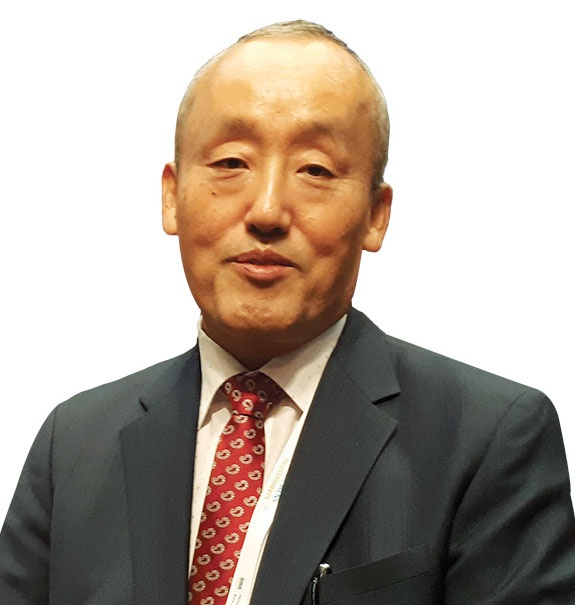Ensuring accessible vaccines for all
The government is promoting vaccine diplomacy to increase vaccination coverage. Do you see any similarities between the vaccine strategy in Vietnam and other countries?
 |
| Dr. Kidong Park, the World Health Organization’s representative in Vietnam |
Lessons from the COVID-19 response in many parts of the world have shown that solidarity and equity are the best approach to ending the pandemic. This global emergency will not be over until transmission is controlled in every last community.
This makes it imperative for all countries to work together towards equitable access to vaccines. The World Health Organization (WHO) acknowledges the government’s high level of commitment regarding vaccinations. It is commendable how the government takes the extra mile and extends the long arm of diplomacy to increase vaccine supply in order to protect its own people and save lives.
As of early September, Vietnam has received over 12.5 million doses of vaccines through the COVAX Facility, the largest single source of vaccines to Vietnam. In recent weeks, we have also seen many countries deploying vaccines to Vietnam and we appreciate those governments for helping to fill the gaps.
I understand that Vietnam aims to secure more than 150 million vaccine doses for at least 70 per cent of its population by the end of the first quarter 2022. As vaccines are shipped based on availability, it is critical for the government to provide vaccines strategically to the people who need it the most, based on priorities.
This means that protecting healthcare and frontline workers, the elderly, and people with co-morbidities should be considered a top priority. The primary role of the vaccine is to protect people with the highest risk of severe diseases.
The WHO, as the co-lead of COVAX, will continue to help increase global vaccine manufacturing and also supply, and support local vaccine production and evaluation capacity.
Amid the global shortfall of vaccines, how does this affect Vietnam’s vaccine diplomacy and how can the business community support the country’s efforts?
While the development of vaccines has been astonishingly quick, for many developing countries, supply still cannot match demand and this is likely to persist for years.
The rapid development of effective vaccines is one of the success stories from this pandemic. But unless vaccines are available to those at highest risk, future variants may threaten progress we have made and prolong the issue. Variants will continue to flourish if the global inequitable rollouts are not addressed.
This supply limitation is aggravated by the global failure to share vaccines equitably and is further fuelling the pandemic. COVID-19 hits the unvaccinated the hardest. Many of them want vaccines, but cannot access them.
Our global targets are to vaccinate at least 10 per cent of the population of every country by September, at least 40 per cent by the end of the year, and 70 per cent globally by the middle of next year. These are the critical milestones we must reach.
The WHO, together with other international partners, issued an urgent appeal of Rapid ACT-accelerator Delta Response and calls to rapidly scale-up vaccines in low- and lower middle-income nations.
We must spare no effort to increase vaccine supply for lower-income countries. The business community can play a huge and significant role in a variety of ways, for example, by removing all barriers to scaling up manufacturing including waiving intellectual property claims, freeing up supply chains, transferring technology, and supporting manufacturing.
Campaigners from the People’s Vaccine Alliance are calling on countries to remove any monopolies on vaccines. What has the WHO done to help increase supply?
In April last year, the WHO and partners launched the ACT-Accelerator, a groundbreaking global collaboration to accelerate development, production, and access to COVID-19 tests, treatments, and vaccines. It is the fastest and most coordinated global effort in history to develop tools to fight a disease.
The vaccines pillar of the ACT-Accelerator is called as the COVAX Facility which is co-led by the Gavi, the Coalition for Epidemic Preparedness Innovations (CEPI), and the WHO – alongside key delivery partner UNICEF. The WHO sets international standards for efficacy, safety, and quality of COVID-19 vaccine.
The CEPI leads support to vaccine research and development, while the Gavi mobilises funds and procures vaccines, and UNICEF delivers vaccines. To date, the COVAX Facility has shipped 261.2 million doses to 141 countries and economies.
The WHO also facilitates tech transfer to expand the capacity of low- and middle-income countries to produce vaccines and increase access to critical tools. A South African consortium comprising Biovac, Afrigen Biologics, and Vaccines – a network of universities and the Africa Centres for Disease Control and Prevention – was selected to host the first COVID mRNA vaccine technology transfer hub. Other applications are currently being reviewed by WHO experts.
What the stars mean:
★ Poor ★ ★ Promising ★★★ Good ★★★★ Very good ★★★★★ Exceptional
Related Contents
Latest News
More News
- Congratulations from VFF Central Committee's int’l partners to 14th National Party Congress (January 25, 2026 | 09:46)
- List of newly-elected members of 14th Political Bureau announced (January 23, 2026 | 16:27)
- 14th Party Central Committee unanimously elects To Lam as General Secretary (January 23, 2026 | 16:22)
- List of members of 14th Party Central Committee announced (January 23, 2026 | 09:12)
- Highlights of fourth working day of 14th National Party Congress (January 23, 2026 | 09:06)
- Press provides timely, accurate coverage of 14th National Party Congress (January 22, 2026 | 09:49)
- Press release on second working day of 14th National Party Congress (January 22, 2026 | 09:19)
- Minister sets out key directions to promote intrinsic strength of Vietnamese culture (January 22, 2026 | 09:16)
- 14th National Party Congress: Renewed momentum for OVs to contribute to homeland (January 21, 2026 | 09:49)
- Party Congress building momentum for a new era of national growth (January 20, 2026 | 15:00)

 Tag:
Tag:

















 Mobile Version
Mobile Version